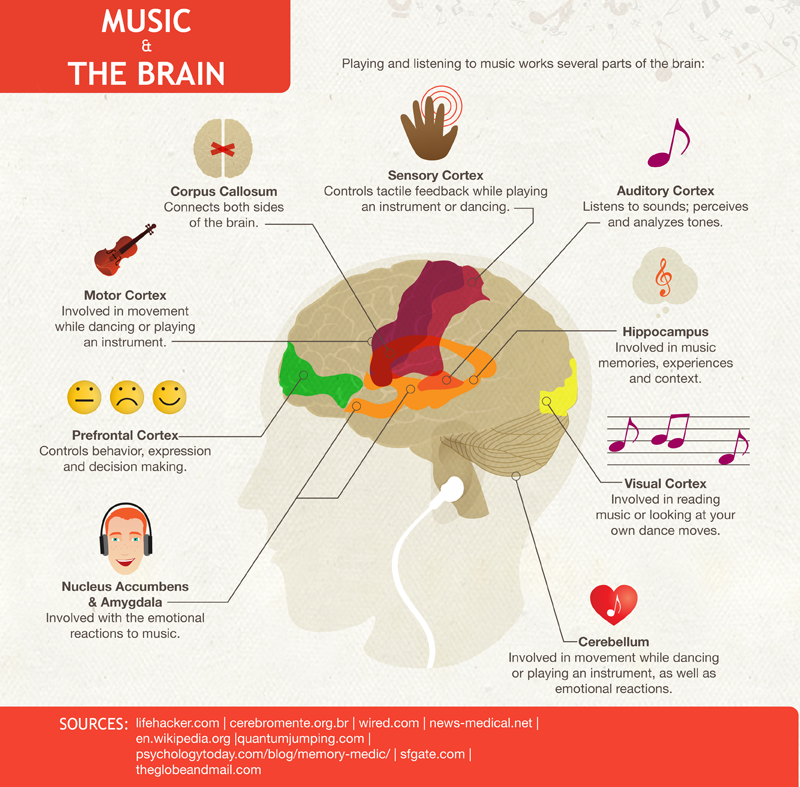“Music is a moral law. It gives soul to the universe, wings to the mind, flight to the imagination, and charm and gaiety to life and to everything.” – Plato
Who doesn’t love music and isn’t somehow emotionally, mentally or even physically affected by it?
That’s also why some people have been known to burst into tears after watching a classical orchestra. We came across an interesting post by Melanie Foster at Online PHD Programs on the 15 Studied Effects of Classical Music on Your Brain. Here’s an excerpt from her piece:
“Classical music, whether you love it or hate it, has been a powerful cultural force for centuries. While it no longer dominates the music scene, the argument for continued appreciation of the genre goes far beyond pure aural aesthetics. Classical music has been lauded for its ability to do everything from improve intelligence to reduce stress, and despite some exaggeration of its benefits, science shows us that it actually does have a marked effect on the brain in a number of positive ways.”
Our favorite effect is how emotional expression in music and speech affect the brain similarly. Music imitates the tonal characteristics of emotions relayed through voice, which taps into our innate communicative abilities. That’s why music can cause a stir in your senses through its different instruments, modes and melodies – and this applies to music of all genres and cultures around the world.
Get a taste of Melanie’s article through the infographic above, and find out what the 15 effects of classical music to the brain are by reading all about it here.

